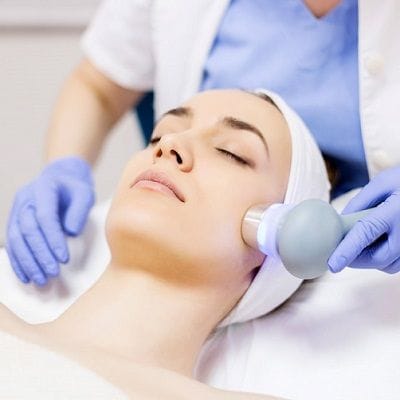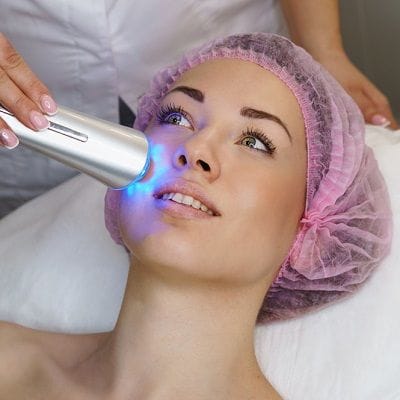
Introduction:
We all desire glass skin, but that dew, the flawless sheen, is unattainable for most of us, irrespective of age. At-home exfoliation with facials, scrubs, glycolic acid, and retinol can assist. And professional resurfacing methods that produce minor skin damage, like exfoliation, exfoliation, or micro-needling, can help you get there faster. When it comes to turbocharged solutions, though, nothing beats lasers.
What Is The Purpose Of Laser Skin Resurfacing?
Laser skin resurfacing is a thermal photo rejuvenation treatment that uses laser light to remove dead skin cells. The skin resurfacing technique eliminates the skin’s outer layers. This causes the body to produce new skin cells that can improve the look of the skin and lessen the appearance of lines, scars, and other abnormalities. The laser treatment also warms the underlying skin layers, tightening the collagen fibers that link skin together and providing a more contoured appearance. It is critical to understand that the surgery will not make your skin seem younger or avoid future aging. However, it can help to decrease fine lines and wrinkles.
The operation may be carried out using two kinds of lasers: carbon dioxide lasers and erbium lasers. The type of laser utilized is determined by the surgeon conducting the surgery and the nation in which the therapy is received. In terms of treatment and outcomes, the erbium and carbon dioxide lasers are very comparable. As a result, the laser is typically chosen based on a suggestion from your skin specialist.
How Should You Get Ready For A Laser Skin Resurfacing Procedure?
If you determine that laser skin resurfacing in Dubai is the appropriate operation for you, there are several things you should do to prepare. Before undergoing laser skin renewal, it is critical to examine your medical history with your dermatologist thoroughly. Drug allergies, medical diseases, including connective tissue and immunological disorders, medicines, and past skin treatments, particularly chemical peels, are all possible causes of laser skin resurfacing issues.
Your doctor will have to know about your allergy history and any other skin disorders such as fever, blisters, or cold symptoms. Although if your skin concerns are minimal, you must notify your doctor. Also, inform your physician if you have any medical conditions, are pregnant or nursing, or have previously undergone cosmetic skin surgery such as a skin treatment or dermabrasion.
Inform your doctor about any drugs or supplementary treatments you are using since certain medications raise the risk of problems during surgery and may need to be changed before laser skin resurfacing. Aspirin, ibuprofen, and vitamin E are examples of supplements and drugs that may raise the risk of problems during the treatment. These medications affect blood coagulation, which may increase the chance of bleeding through surgery or postpone your recovery. At least ten days before the operation, the surgeon should provide you with a list of drugs and supplements to avoid. People planning for laser skin resurfacing should also quit smoking. Smoking may impede the recuperation process and possibly cause the skin to age quicker, erasing the treatment’s effects.
Your medical staff may also advise you to take drugs or nutrients before the treatment. Individuals vulnerable to skin infections and fever blisters may be given antibiotics or antiviral medications to prevent breakouts following the skin resurfacing surgery. It is advised that you avoid as much sun coverage as feasible for up to two months before the treatment.
What Happens After The Procedure?
The skin will be raw, puffy, and irritating after the operation. You will need to maintain the surgical skin region as clean as feasible. The physician will give you a particular ointment or prescribe a medication for your skin’s aftercare. To hide the incision, they may put a bandage. You should avoid the sun and intense activity (discuss this with your surgeon), and you should anticipate needing to care for the wound for 1-2 weeks until new layers of skin form. The treated area is advised to be cleaned five times a day with saline or reduced vinegar and a particular ointment to moisturize the skin.
After laser skin resurfacing in Dubai, you may expect specific adverse effects. The surgery causes inflammation in the majority of patients. You can reduce swelling by using an ice pack and elevating your head with an additional pillow at night. The swelling goes away with time, but the redness and swelling might last for months, and you won’t notice the difference in the look of your skin until you’ve recovered from these adverse effects. Even after the skin has healed, you must continue safeguarding it from the sunlight and refrain from smoking.
Final Thoughts:
Your dermatologist will provide you with advice for the initial care you will need following your cosmetic surgery. Follow-up procedures are critical for achieving optimum results. The healing period following laser resurfacing varies based on the individual and equipment utilized; generally, the skin peels and recovers for seven days. For the first five days, a healing cream/ointment is necessary, and may use cosmetics on Day 7 to help cover the pinkness. You should avoid sunlight exposure for a month following the operation.
Laser resurfacing in Dubai’s cost depends on the doctors and clinics. Before deciding on laser skin resurfacing, you should consult with many doctors and assess their qualifications and expertise. A trained cosmetic surgeon or dermatologist, Dr. Antoine Ghanem, should perform the laser skin resurfacing operation.


































